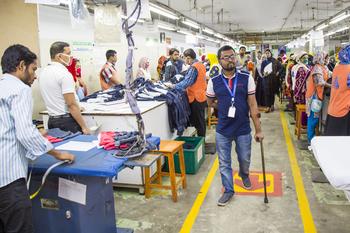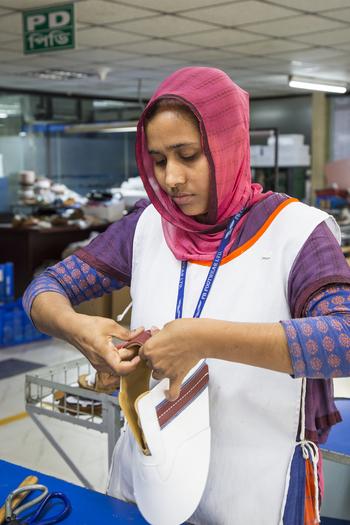Context
Employees in Bangladesh’s textile and leather sectors are exposed to different risks regarding their health and safety at their workplace on a daily basis. The number of workplace injuries and occupational diseases in Bangladesh cannot be exactly quantified due to a lack of reliable statistics. Mandatory reporting on accidents at the workplace and occupational diseases is widely ignored. Tragic events, such as the collapse of the Rana Plaza factory building in April 2013 or the factory fire at Tazreen Fashions in November 2012 have directed international attention to the precarious working conditions in Bangladesh’s textile sector.
Although legal provisions and strategies are now in place for prevention, rehabilitation and compensation, these are fragmented and have yet to be embedded in an overall strategy. Furthermore, even though the companies are subject to civil liability, only a notable few fulfil their legal obligations. The responsible government bodies require more resources to enforce the legal provisions to ensure that affected individuals have a fair chance of asserting their claims.
The Government of Bangladesh is aware of the issues and plans to introduce an employment injury protection scheme which will include prevention, rehabilitation and compensation. However, the legislative frameworks, administrative structures and processes required for the roll-out of a statutory employment injury protection scheme are not yet in place.
The project’s target group comprises industrial workers in Bangladesh. According to official statistics, 7.3 million people have employment contracts. The employment injury protection scheme will be introduced first for workers in the textile and garment industries and in the leather sector. These are usually unskilled workers in low-wage jobs, with women accounting for the majority of the workforce.
Objective
A national employment injury protection scheme in Bangladesh will ensure long-term protection for the workforce against work-related accidents and occupational diseases.

